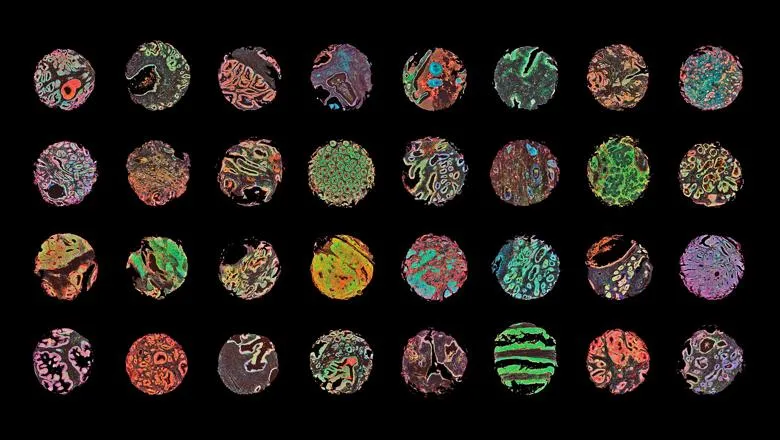Cancer is a complex disease and requires ever improving interventions. We believe we have established a novel drug discovery platform that can yield MPRCs therapy for other types of cancers as signalling pathways like the Wnt pathway are activated in many cancers. We will also aim to identify other signalling pathways that are important in cancer to investigate if MPRCs could be used to inhibit these and thus slow down cancer progression."
Dr Aamir Ahmed
09 February 2022
Dr Aamir Ahmed awarded patent for innovative drug repurposing therapy
The patent will allow for clinically efficient and cost-effective treatment of epithelial cancers such as prostate, breast and colon cancers.

Prostate, breast and colon cancer cause nearly 40,000 deaths in the UK and hundreds of thousands worldwide. These cancers constitute a significant cost burden for the NHS.
Dr Aamir Ahmed, Head of the Prostate Cancer Research Centre at King’s, together with Dr Christopher Thrasivoulou at UCL, have been awarded a patent by the European Patent Office (EPO) for their ground-breaking drug repurposing therapy for epithelial cancers.
Despite an increase in our understanding of cancer as a disease, over the decades there have not been drastic improvements in treatments for most cancers and neither has there been a reduction in the terrible side effects of most conventional cancer therapies. At the same time cost of cancer treatment has increased exponentially.
Drug repurposing involves using drugs that are in current clinical use to treat diseases other than what they were originally intended for. A key advantage of repurposed drug therapies is limited and known side effects, unlike the severe side effects of current cancer therapies, resulting in enhanced quality of life for cancer patients.
Cancer is a disease in which there is an uncontrolled cell proliferation and there are key cellular pathways that control a significant proportion of the process of cancer development. One such cellular pathway is called the Wingless pathways or the Wnt pathway. The researchers identified a novel mechanism of action of the Wnt pathway in epithelial cancers of prostate and breast.
Their discovery shows that the electrical properties across the cell membrane play a crucial role in the activation of the Wnt pathway that signals the cell to multiply more. With this fundamental information at hand they identified a class of compounds that they call Membrane Potential Regulating Compounds (MPRCs), consisting of many different molecules that are currently used to treat cardiac, neurological or kidney disorders. These MPRCs inhibit the Wnt pathway and inhibit cancer cell proliferation.
Drs Ahmed and Thrasivoulou plan to have MPRCs (drugs) tested and validated for cancer therapy. Randomised clinical trails to approve therapies for clinical use require substantial funding. However, repurposed drugs generally have long term data about safety and dosing which means they can be taken directly to Phase III clinical trials, thereby reducing costs and shortening the time to approval if successful.
